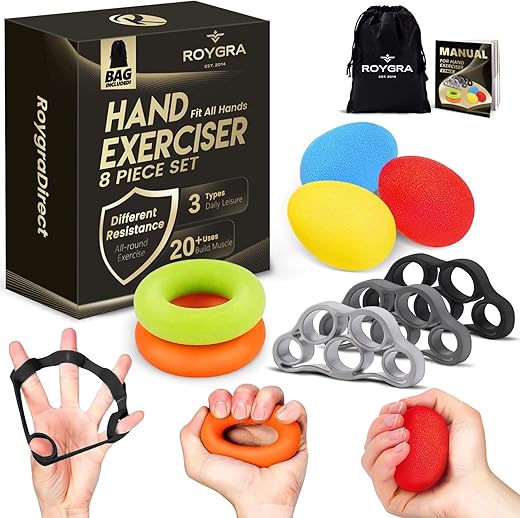exercise and parkinson’s
Unlocking the Power of Exercise: A Parkinson’s Game-Changer
Exercise and Parkinson’s is the dynamic duo that’s changing lives.
Unlocking the Power of Exercise: A Parkinson’s Game-Changer
In the realm of Parkinson’s disease, where symptoms can often be challenging to manage, exercise emerges as an unsung hero, offering a glimmer of hope and improved quality of life. Welcome to this in-depth exploration of “exercise and Parkinson’s,” where we’ll delve into the extraordinary benefits of incorporating physical activity into the lives of individuals grappling with this neurological condition.
The Parkinson’s Puzzle
Before we plunge into the profound effects of exercise on Parkinson’s, let’s briefly decipher the intricacies of this condition. Parkinson’s disease is a progressive neurodegenerative disorder that affects an individual’s motor functions. Symptoms may include tremors, bradykinesia (slowness of movement), rigidity, and postural instability. These challenges make even the simplest daily tasks, such as walking, talking, or getting dressed, increasingly difficult.
Exercise as a Game-Changer
Now, here’s where exercise enters the stage as a game-changer. It’s essential to understand that while exercise cannot cure Parkinson’s disease, it can significantly alleviate its symptoms and enhance the overall quality of life for those living with the condition. So, how does it work its magic?
Enhancing Mobility and Balance
One of the most evident symptoms of Parkinson’s is the loss of balance and mobility. Regular exercise, such as stretching and strength training, can significantly improve a patient’s balance, making them more stable on their feet. Moreover, exercise can enhance mobility and reduce the risk of falls, a common concern for Parkinson’s patients.
Boosting Neuroplasticity
Exercise triggers a remarkable phenomenon known as neuroplasticity, which is the brain’s ability to rewire itself. In the context of Parkinson’s, this means that exercise can encourage the brain to form new connections and compensate for the damage caused by the disease. As a result, it may slow down the progression of the condition.
Dopamine Release
Dopamine is a neurotransmitter that plays a crucial role in regulating movement and mood. In Parkinson’s, the brain’s ability to produce dopamine is compromised. Exercise, particularly aerobic activities, can stimulate the release of dopamine, providing temporary relief from symptoms like stiffness and slowness.
Tailoring Your Exercise Regimen
While the benefits of exercise for Parkinson’s are evident, it’s important to tailor the exercise regimen to the individual’s specific needs and capabilities. Here are some considerations:
- Consult a Specialist: Before embarking on an exercise journey, it’s essential to consult with a healthcare professional who specializes in Parkinson’s. They can provide personalized recommendations.
- Choose the Right Activities: Not all exercises are created equal. Low-impact activities like walking, swimming, and yoga are often recommended. However, it’s essential to find activities that are enjoyable to maintain long-term commitment.
-
Consistency is Key: Regularity in exercise is vital. Creating a consistent routine will yield the most benefits.
-
Listen to Your Body: Parkinson’s symptoms can fluctuate. Some days may be better than others. It’s crucial to listen to your body and adjust your exercise routine accordingly.
Real Stories, Real Results
Now, let’s hear from individuals who have integrated exercise into their lives and witnessed remarkable changes. Their journeys serve as a source of inspiration for all those facing the challenges of Parkinson’s disease.
- Ava’s Triumph: Ava, a Parkinson’s warrior, discovered the transformative power of dance. She incorporates dance therapy into her routine, allowing her to express herself, improve balance, and boost her mood.
-
Liam’s Strength: Liam, a fitness enthusiast, adapted his weightlifting routine to cater to his Parkinson’s. He shares his insights on how strength training has increased his stamina and muscle control.
-
Mia’s Mindfulness: Mia, an advocate for yoga, discusses the profound impact of mindfulness and flexibility exercises on her Parkinson’s journey. Yoga has helped her find inner peace and improve her balance.
Promoting a Healthier Lifestyle
In addition to discussing the benefits of exercise for Parkinson’s, we can’t overlook the importance of a healthy lifestyle. Proper nutrition, stress management, and a supportive community can complement the effects of exercise. It’s all about creating a holistic approach to managing Parkinson’s.
Introducing TellGrade Products
As we delve into the world of promoting a healthier lifestyle, it’s worth mentioning the incredible products offered by TellGrade. These products are designed to enhance various aspects of one’s well-being.
- TellGrade® Ceramic Flat Iron Hair Straightener Dual Voltage: For individuals looking to maintain a polished and confident appearance, our flat iron ensures sleek and smooth hair, giving you that extra boost of self-assurance. Link here
-
TellGrade New Ventilated Weight Lifting Gloves with Wrist Wraps & Full Palm Protection: For those interested in strength training and weightlifting, our gloves provide the support and protection you need to maximize your workout. Link here
Join the Conversation
In conclusion, exercise and Parkinson’s may seem like an unlikely pair, but their synergy is a testament to the remarkable capabilities of the human body. If you or a loved one is living with Parkinson’s, consider incorporating exercise into your daily routine, guided by a professional’s advice. Share your thoughts and experiences in the comments below and join the conversation on how exercise can be a game-changer for Parkinson’s patients. Together, we can explore new perspectives, provide support, and make a positive impact on those living with this condition.
As you’ve explored the incredible potential of exercise to transform the lives of those with Parkinson’s, we want to take a moment to remind you that the journey doesn’t have to end here. The article you’ve just delved into is a testament to the remarkable benefits that exercise can bring, offering hope and opportunities for improved well-being.
But, we understand that reading about it is just the beginning. To truly unlock the power of exercise for Parkinson’s, you need the right tools and resources at your fingertips. That’s why we’ve curated a selection of Parkinson’s exercise equipment that can further empower your journey. These carefully chosen products are designed to enhance your exercise routine, improve your mobility, and make every step of your health and wellness journey more achievable.
Whether you’re seeking support for strength training, balance improvement, or simply a boost of motivation, our collection of exercise equipment is here to serve your unique needs. So, why not explore these offerings and take that next step towards a healthier, more active life? Your future self will thank you for it.
Shop Products On Amazon
Shop Products on Ebay
Trending Similar Stories in the News
Parkinson’s disease: Does mitochondrial damage play a role? — Medical News Today
October 9, 2023 — Medical News TodayParkinson’s disease: Does mitochondrial damage play a role? Medical News Today…
Air Force Vet With Parkinson’s Shares Ironman Triathlon Journey — Men’s Journal
October 16, 2023 — Men’s JournalAir Force Vet With Parkinson’s Shares Ironman Triathlon Journey Men’s Journal…
Trending Videos of exercise and parkinson’s
Similar Popular Articles
Related Posts
Transform Your Life: How Exercise Revolutionizes Parkinson’s Management
#ParkinsonsExercise, #HealthAndWellness, #ExerciseBenefits, #NeurologicalHealth, #Mobility, #ExerciseForLife, #FitnessForAll, #ParkinsonsSupport, #QualityOfLife, #ActiveLiving, #StrengthTraining, #MindBodyWellness, #HealthJourney, #DopamineBoost, #StayActive, #ExerciseIsMedicine
“Parkinson’s exercise benefits, Managing Parkinson’s with fitness, Exercise strategies for Parkinson’s, Physical activity and neurological health, Staying active with Parkinson’s, Exercise plans for Parkinson’s patients”




 Amazon.com
Amazon.com 

















